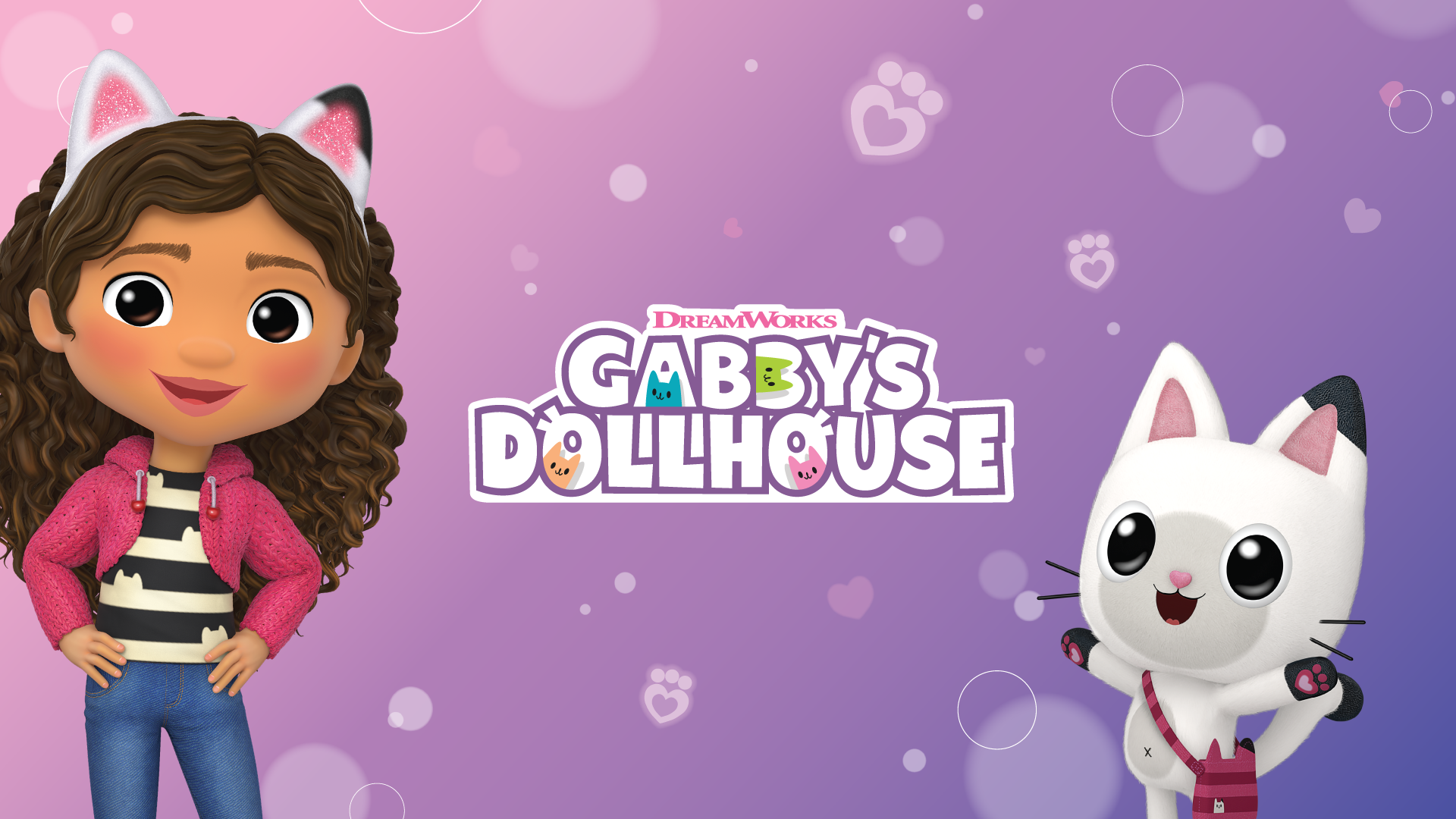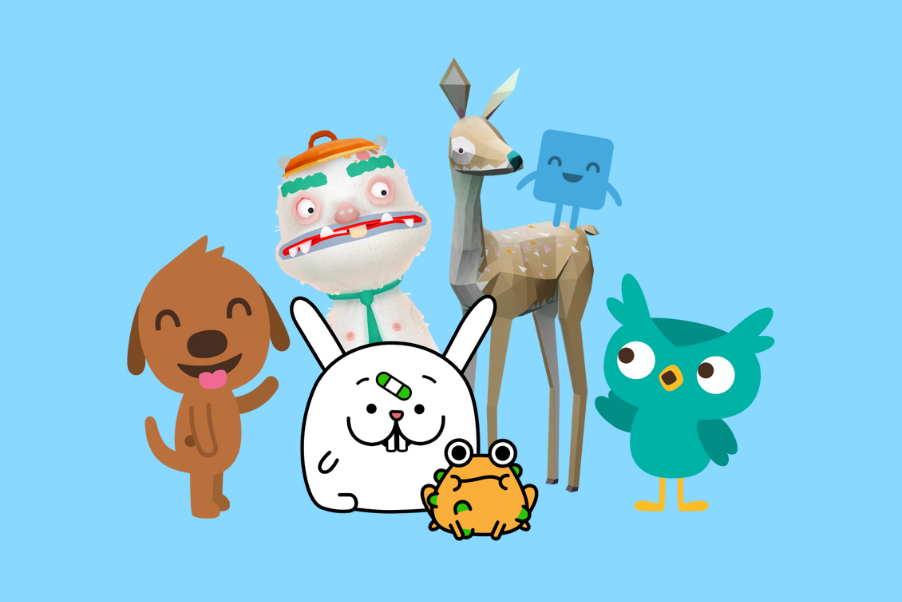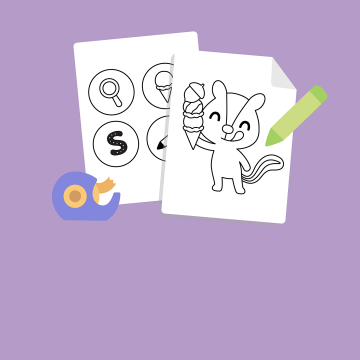- Boosting your little one's self-esteem and confidence
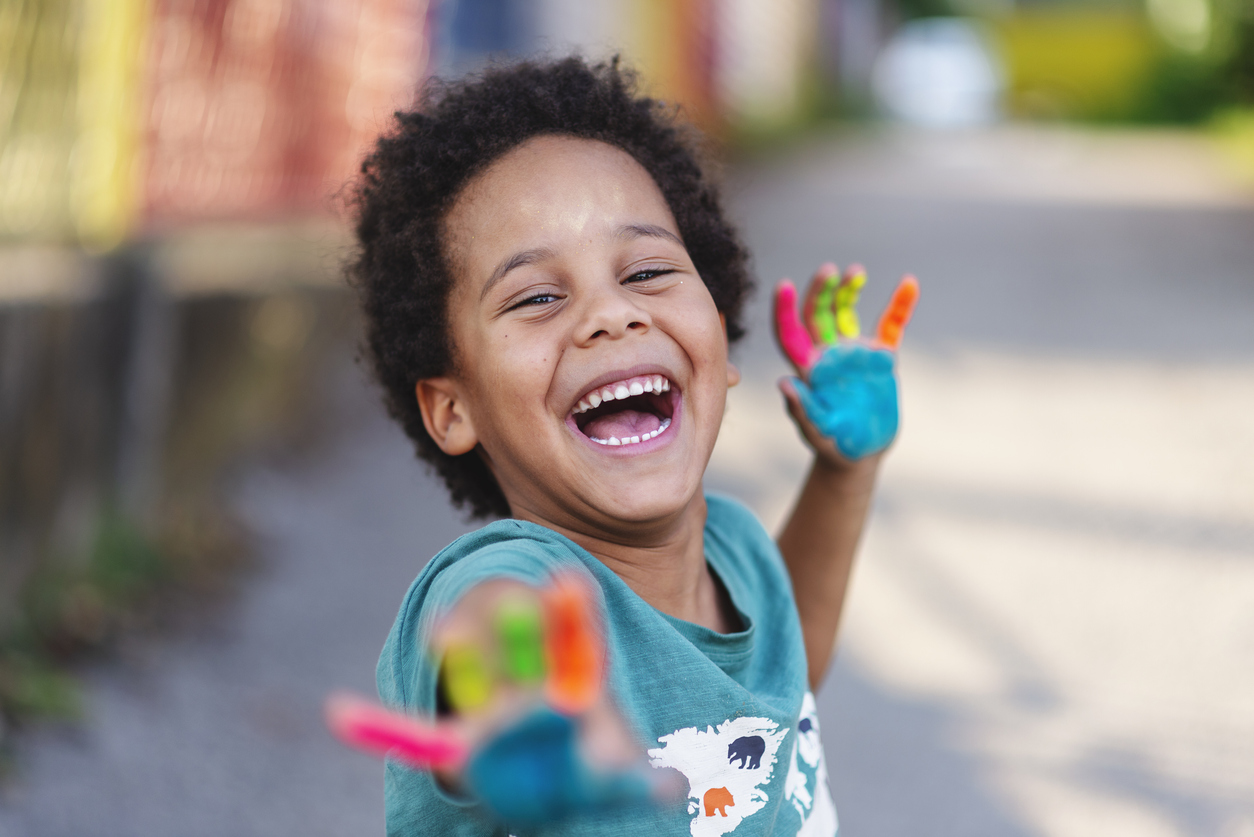
Kids are naturally curious beings. Their willingness to discover, explore, and learn can be affected by a child’s confidence and self-esteem, which have a significant contribution to their development. In order to feel good about themselves, children need to be able to try new things. If they feel confident in what they are doing, they’re more likely to give their best effort.
Why are self-esteem and confidence important?
Little ones are eager to learn about the world around them. They’re constantly exploring, discovering what they like and don’t like, and figuring out how things work. In order for kiddos to try new things, they first need to have the courage to take that first step out of their comfort zone to a place they’ve never been before. Even as adults, we may find this first step a bit daunting.
Kiddos who feel good about themselves are more likely to take the leap and try something new. Without fear of failing, they’re more comfortable diving right in and giving it their best shot.
Failing is part of life and it’s all part of the learning process. A self-confident child can cope with their mistakes and process them in a healthy manner. Confidence helps little ones try again and “fail better,” while getting to know what their strengths and weaknesses are. They’ll also discover that there’s a lesson in every failed attempt and that it’s perfectly normal to not get the hang of something on their very first try. Since kiddos are like little sponges, soaking up every bit of information they learn, these discoveries will help them do better at school or daycare, in their relationships with their friends, and at home.
When children don’t feel confident, it can affect them in a number of different ways. They may worry about fitting in with their peers and as a result, they may withdraw from playing with others. Low self-esteem and confidence can cause them to have a hard time completing tasks, or they may be quick to give up, believing that they’re not capable of figuring it out.
How to boost self-esteem and confidence in kids
There are plenty of ways you can help your kiddo feel confident in who they are, and appreciate all the things that make them unique. From validating their interests to ensuring they have opportunities to practice problem-solving skills independently, parents can encourage their kiddos to be the very best version of themselves. Here are a few easy ways that you can help boost your kiddo’s self-esteem and confidence:
Make time for play
Did you know that playtime can be one of the best ways to boost your kiddo’s confidence? We’re big believers in the power of play – it’s how little ones learn best, and it does wonders for their development. Numerous studies have shown that open-ended playtime with your child reduces stress and increases their self-confidence. Through play, little ones develop essential skills and learn about the world around them. They’ll learn social skills through pretend play, fine motor skills when they play with small toys, gross motor skills when they’re active, they’ll boost their creativity when they’re engaging in imaginative playtime, and so much more. Give kiddos time to explore, discover, and imagine through play, and join in from time to time! It’s one of the best ways to bond with your little one.
Give space for independence
It may feel instinctive to help out your kiddo when they’re stuck on a problem. However, it’s important to give them the space to work on their problem-solving skills and try to come up with a solution on their own (when appropriate). However, it often requires a bit of patience. While it would certainly be much faster if you zipped up their coat for them, letting them figure it out with some guidance will help them learn a new skill and become more independent in the long run. Learning how to do things themselves helps little ones feel more confident and grown-up, boosting their self-esteem.
Get kiddos involved in decision-making
When you make a decision that affects everyone in your family, try to ask your kiddo’s opinion on the matter too, no matter how young they may be. They’ll learn that their thoughts and opinions are important, and they’ll feel that they are being heard. Also by doing this, you’ll help them acknowledge how everyone’s opinions matter and the final decision almost never favors only one member of the family. This also helps children who are learning empathy better understand the needs of others.
Another possible way to incorporate decision-making into daily life is by allowing them to make their own decisions when appropriate. For example, you could ask your child, “Which clothes would you like to wear today?” Or, “Do you need any help with that?” And if they don’t want any help, let them know you’re there whenever they need you!
Alternatively, you can give them options such as, “Would you like to wear the blue shirt or the red shirt today?” Or, “Would you like apple slices or a banana for your snack?” Giving them the choice between a few options can help them practice decision-making and feel like their preferences are being considered.
Take the fear out of making mistakes
No matter how hard we try, humans aren’t perfect…we all make mistakes. It’s important that kiddos know that mistakes are simply a part of life, and everyone makes them from time to time. Helping little ones see mistakes as constructive learning experiences instead of something to be ashamed of can help them be more resilient to setbacks.
When your child makes a mistake, talking through it together can help your child learn from the situation and process their emotions in a safe space. Discussing what they can learn from their mistakes while validating their feelings can prevent little ones from feeling shame or embarrassment, and instead empower them to try again.
Also, don’t forget how helpful it can be for little ones to see that adults still make mistakes sometimes, too. Giving your child an example of when you’ve had your own slip-ups can normalize mistakes. Plus, it can be an opportunity for a funny story to help lighten the mood! (Maybe you have a story about the time you accidentally dropped a fully decorated birthday cake on the kitchen floor. Or, maybe that time you tried cutting your own bangs turned out to be an absolute disaster.) Using a kid-friendly example from your own experiences can help them feel a bit better!
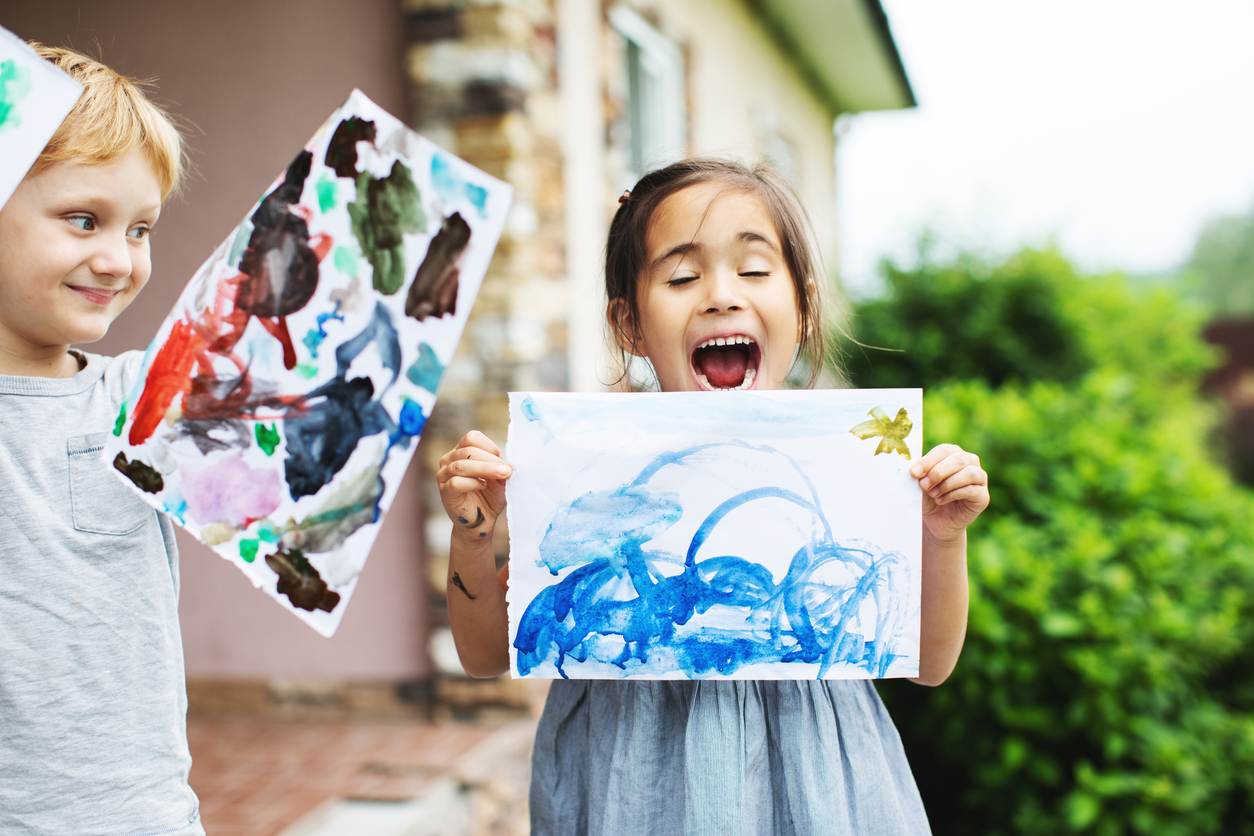
Celebrate and show off hard work!
Little ones are often creating their own masterpieces – arts and crafts are favorite activities at daycare, school, and at home. Next time your kiddo comes home with a new piece of art, show it off! Hang their creations up on the wall, wear the t-shirts you made together, and proudly rock that macaroni necklace you got for Mother’s Day…even if it’s just around the house! Talk to them about what they were thinking of when they were creating it. What were they feeling? How did their classmates react to their creations? What are they most proud of? Giving them the space to talk about their work will increase their self-esteem and confidence in their abilities. They will feel valued, and that their hard work paid off. This encouragement can be just the inspiration they need to keep going, keep trying, and keep making mistakes!
